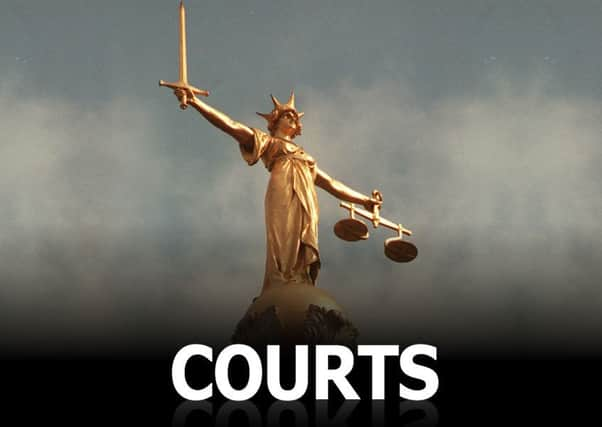Hatton murder trial update: defendant was drunk at time of incident


But a toxicologist told a jury at Warwick Crown Court that he could not ‘back-calculate’ the alcohol level of victim Edward Cornet because of the blood transfusion he had received.
The court has heard that at the time of his death in May last year Mr Cornet lived in Blackwell Lane, Hatton Park, near Warwick, with his partner Stephanie Merrilees.
Advertisement
Hide AdAdvertisement
Hide AdHer son Jack Merrilees, 21, of Linkway, Leamington, has pleaded not guilty to murdering 55-year-old Mr Cornet.
Kate Brunner QC, prosecuting, has told the jury a 999 call was made from Mr Cornet’s home at shortly after 11pm, and paramedics arrived to find him lying bleeding on the patio.
“Edward Cornet had been stabbed three times in his chest and the knife had gone into his heart and, despite the efforts of the paramedics, he died later that night.”
The jury heard there was no dispute it was Merrilees, whose girlfriend had made the 999 call, who had stabbed Mr Cornet with a kitchen knife which was found in a flower bed.
Advertisement
Hide AdAdvertisement
Hide AdThe issue was expected to be whether he had done so in defence of himself or another following what neighbours described as a heated argument between the two men.
On the second day of the trial consultant forensic toxicologist Simon Elliott said he was provided with a sample of Merrilees’ blood, which had been taken some time after his arrest, and was asked to ‘back-calculate’ what his alcohol level would have been at the time of the stabbing.
He confirmed that, in doing so, he had to make certain assumptions, including that there had been no drinking immediately before the sample was taken, and that all the alcohol consumed had been absorbed into the body, which he said takes about an hour.
And Mr Elliott told the jury: “The result was that the concentration at approximately 11.12pm would have been 180ml per decilitre. The legal limit for driving is 80.”
Advertisement
Hide AdAdvertisement
Hide AdHe confirmed that there was no evidence that either Merrilees or Mr Cornet had consumed drugs – apart from those administered to the victim by medics.
Asked about Mr Cornet’s alcohol level he said he was given samples of urine and the vitreous humour from his eye, from which he obtained readings of 110 and 89 respectively.
“We can conclude that alcohol has been consumed at some point prior to death.
“But the evidence given to us was that there had been a blood transfusion, which can cause complications in relation to the analysis of blood.”
Advertisement
Hide AdAdvertisement
Hide AdMr Elliott said it was not possible to back-calculate from post mortem samples.
Miss Brunner asked him: “Given what you know about the treatment, and that he had been given 21 units of blood, are you able to say whether his blood/alcohol concentration was likely to be lower or higher?”
Mr Elliott said the reading he obtained from the urine would equate to a reading of 83 in blood, which was just over the legal drink-driving limit, but that it was likely to have been higher at the time he was stabbed.
Jane Bickerstaff QC, defending, put to him: “Would you agree that the best evidence as to how affected someone was by alcohol at a particular time may well be from people who saw them and dealt with them at the time?” Mr Elliott agreed.
Advertisement
Hide AdAdvertisement
Hide AdShe pointed out that as well as a blood transfusion, Mr Cornet had been put on a saline drip, commenting: “So effectively he’s having 21 units of his blood, with alcohol in it, replaced with clean blood, and the saline to replace lost fluid.
“If for a couple of hours prior to his death he was on a drip, that’s going to filter through his body and start filling his bladder.
“So you could not even begin to guess how much alcohol he had in his system at the time of the incident.”
Again Mr Elliott agreed.
The trial continues.